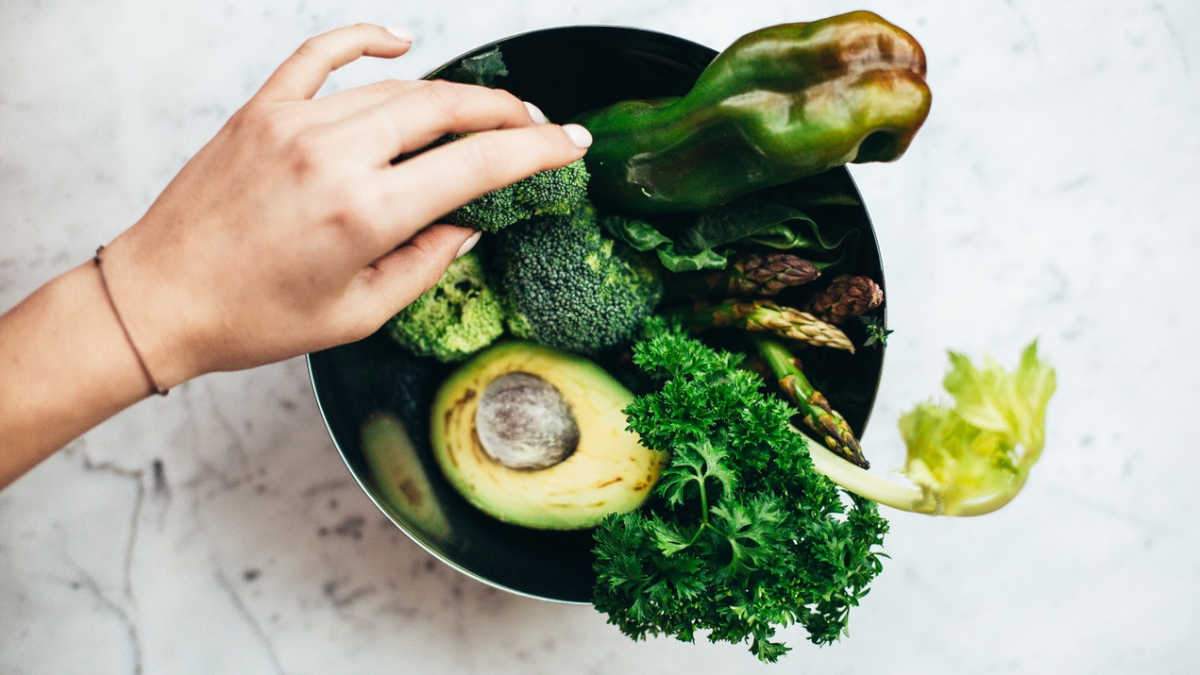Experiencing inflammation is normal and natural. It’s a part of our immune response to fight an infection (caused by bacteria or viruses) that attacks our body. This usually results in the classic signs of swelling, pain, and redness. However, if the inflammation is persistent, it can be a sign of major health issues, such as arthritis, psoriasis, heart diseases, and diabetes, among others. Besides taking medication to reduce inflammation, you can also be mindful of what you eat. Some experts even believe that the foods and drinks you consume could be a better route to lowering inflammation levels than medications. In this article, we’ll look at the benefits of anti-inflammatory foods for your health, who an anti-inflammatory can diet help, as well as a list of anti- and pro-inflammatory foods.
The benefit of anti-inflammatory foods
If you’re taking medication for inflammation-induced diseases, having an anti-inflammatory diet as a complementary therapy could help to lower the inflammation level. However, anti-inflammatory foods aren’t a magic cure against inflammation chronic diseases. That means you still need to take the recommended treatment suggested by your doctor. Following the anti-inflammatory diet plan as well can lessen the effects of the flare-ups and pain in your body.
Generally, pro-inflammatory foods (foods that can worsen or promote inflammation) are considered bad for our health. Some of these foods may also contribute to weight gain, which can increase the risk of inflammation by itself. Even if you don’t experience inflammation-related diseases, eating anti-inflammatory foods can help lower the chances of having other health problems in the long run.
Who can anti-inflammatory foods help?
If you’re experiencing one of these conditions, taking anti-inflammatory foods as part of your routine may help fight the flare-ups.
- Arthritis diseases, such as rheumatoid arthritis, osteoarthritis, and gout
- Bowel diseases, such as Crohn’s disease and ulcerative colitis
- Psoriasis
- Asthma
- Metabolic syndromes (a collection of conditions that tend to occur together), such as obesity, type 2 diabetes, hypertension, and cardiovascular disease
The list above isn’t a complete list of diseases that could be benefited from consuming anti-inflammatory foods. Consult with your doctor to check whether having this particular diet can help improve your health condition.
Some anti-inflammatory foods
Anti-inflammatory foods include various variations of fruits, vegetables, whole grains, plant-based proteins, fatty fish, and herbs/spices.
- Fruits: berries, cherries, avocados, and tomatoes
Berries provide antioxidants called anthocyanins which can reduce inflammation and boost immunity.
Avocados are considered a superfood because it’s packed with various beneficial compounds, such as potassium, fiber, carotenoids, and tocopherols (to reduced cancer risk), as well as the heart-healthy monounsaturated fats.
Tomatoes, on the other hand, are an impressive antioxidant source. They contain a high lycopene level which may be beneficial for reducing inflammation and protecting against several types of cancer.
- Vegetables: kale, spinach, and broccoli
The leafy greens vegetables, such as kale and spinach, contain antioxidant compounds that help detoxify the body and function as anti-inflammatory agents. Additionally, they are rich in vitamin C which can strengthen the immune system.
Broccoli is also extremely nutritious with sulforaphane, an antioxidant with powerful anti-inflammatory effects.
- Whole grains: oatmeal, brown rice, and barley
Oatmeal is rife with antioxidants called avenanthramides which can help suppress inflammation. Besides that, most of the unrefined grains tend to have a high level of fiber which can play an important role in reducing inflammation.
- Plant-based proteins: chickpeas, seitan, and lentils
If you adopt a vegetarian lifestyle, you’re very likely to be already familiar with these plant-based proteins. Most of the plant-based proteins contain antioxidant-rich polyphenols which are believed to have anti-obesity, anti-cancer, anti-diabetes, and anti-inflammatory properties.
- Nuts: walnuts and almonds
Besides avocados and olive oil, nuts are another food source that contains a healthy kind of fat that helps stop inflammation. Be mindful of the portion when consuming nuts as each type of nuts contains different nutritional factors. For example, the Australian Dietary Guidelines recommend a daily serving of 30 g of nuts. This equates to 20-30 pieces of almonds, but 10 pieces of whole walnuts. Eating too many nuts could be bad for your health.
- Fatty fish: salmon, tuna, and sardines
Fatty fish are a great source of omega-3 fatty acids (EPA and DHA) and protein. Your body metabolizes these fatty acids into compounds called resolvins and protectins which have an anti-inflammatory effect.
- Herbs and spices: turmeric
Curcumin, a compound that can be found in turmeric, is a powerful anti-inflammatory agent. If you consume turmeric with black pepper, it can significantly enhance the absorption of curcumin and make the outcomes more impactful.
- Other foods: dark chocolate, green or black tea, and olive oil
Not only eating dark chocolate is enjoyable, but it’s also packed with antioxidants called flavanols that fight inflammation. Make sure that the dark chocolate of your liking contains at least 70% cocoa to maximize this anti-inflammatory benefit.
Green tea is rich with catechins compounds that are believed to be responsible for giving the cancer-fighting, antioxidant, probiotic, and metabolism-boosting benefits to this tea. Black tea also has anti-inflammatory properties, but not quite as much as green tea.
According to some research, oleocanthal (an antioxidant found in olive oil) has a similar effect to anti-inflammatory drugs such as ibuprofen. Try to get extra virgin olive oil as it offers higher anti-inflammatory benefits than refined olive oil. Furthermore, other than suppressing the inflammation, olive oil is also believed to may improve blood vessel function, insulin sensitivity, and lower high blood pressure.
Some pro-inflammatory foods
In general, processed food, fried foods, and sugar-sweetened beverages promote inflammation. Here are some examples of foods and beverages that may increase the levels of inflammation:
- Junk food: fast food and potato chips
- Refined carbohydrates: pastries, white bread, pasta, and white crackers
- Processed meats: hot dogs, sausage, bacon, salami, and beef jerky
- Fried food: french fries, fried chicken, and donuts
- Trans fats: margarine, shortening, and lard
- Sugar-sweetened beverages: energy drinks, sports drinks, soda, and sweet tea
Conclusion
Consuming anti-inflammatory foods isn’t only beneficial for people who are experiencing chronic inflammatory diseases, but also for those who want to lower the risk of having one. Taking this specific diet in tandem with medication therapies may reduce the inflammation more significantly than taking anti-inflammation medications only. Talk with your doctor about this possibility to find the best anti-inflammatory diets that suit your condition.
Here are some articles that we think you might be interested in:
Rheumatoid Arthritis: Infusion Therapy Explained
New Psoriasis Treatments: What Are the Latest Medications on the Market



